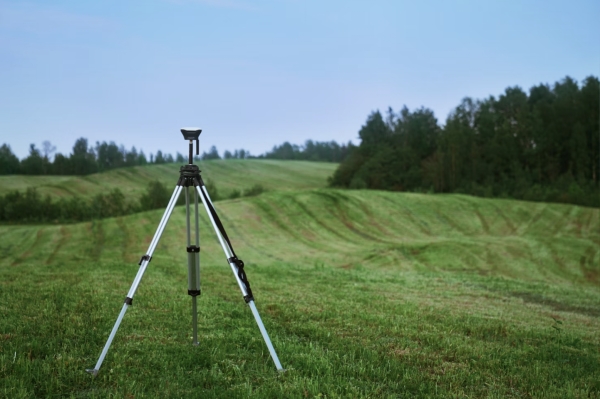Michigan is experiencing a shortage of land surveyors. Over the past seven years, Michigan saw a 12% decline in the number of active land surveyors, which is causing concerns about the future of the profession. One contributing factor to Michigan’s land surveyor shortage is retirements. The average age of a land surveyor nationwide in 2016 was around 60 years old, and nearly all were men. Aspiring land surveyors in Michigan must obtain a bachelor’s degree, pass numerous exams, and obtain at least eight years of professional experience, with up to five of those years obtained during school. Rapid technological advancements also are at least partially driving the need for more land surveyors. While technology has decreased opportunities for young surveyors to seek training and employment growth, it allows for accurate work to be conducted quickly. Universities, professional societies, and private companies are seeking to bolster awareness about the profession through outreach programs. Gary Hahn, a land surveyor with more than four decades of experience at Wightman, hopes the land surveying profession will persevere.
Land surveyors in Michigan are aging and retiring, raising concerns about the future of a profession that many other industries depend on to keep projects moving. The number of active land surveyors in Michigan has declined by 12% over the past seven years. This decline has led to a shortage of professionals who play a critical role in development by documenting precise legal descriptions of properties, maps, and territories. Land surveyors are relied upon by a variety of industries such as large manufacturers seeking to construct a plant in an undeveloped rural area, or attorneys compiling a seller’s historic real estate holdings in preparation of a business sale.
Data from the Michigan Department of Licensing and Regulatory Affairs showed a 30% decline in land surveyor applications and a 40% decrease in license renewals from 2015 to 2022. Meanwhile, the U.S. Bureau of Labor Statistics forecasts nationwide land surveyor employment to rise by only 1% from 2021 to 2031. This shortage of land surveyors is confronting the reality of the widespread reliance on their services to keep projects moving.
Ed Bailey, director of operations and business development for the Marine Center at Traverse City-based Northwestern Michigan College, said there are not enough people available to do the work. Bailey added that society would cease to exist without the existence of surveyors, as nothing we see around us would be there without the collection and mapping of data.
The shortage is causing some firms, like Monument Engineering Group Associates Inc. (MEGA) in Fowlerville, to experience one to four-month project backlogs. MEGA specializes in civil engineering, surveying, aerial mapping, and seismic services in six states. Allan Pruss, president and owner of MEGA, said retirements are one contributing factor to Michigan’s land surveyor shortage. The average age of a land surveyor nationwide in 2016 was around 60 years old, and nearly all were men, according to industry reports at the time.
The land surveying industry in Michigan is experiencing a shortage of new professionals, leading to concerns about the future of the profession. Gary Hahn, a land surveyor with more than four decades of experience at Wightman, said that young students may be dissuaded from entering the field because of the profession’s education requirements. Aspiring land surveyors in Michigan must obtain a bachelor’s degree, pass numerous exams, and obtain at least eight years of professional experience, with up to five of those years obtained during school. By comparison, Wisconsin has fewer requirements for licensure, which some Michigan surveyors appreciate.
Despite the difference in requirements, Wisconsin land surveyors can expect to earn similar wages as surveyors in Michigan. However, Michigan employs around 60% more land surveyors than Wisconsin, according to federal labor data. This shortage of land surveyors is leading some industry experts to worry that Michigan may eliminate the need for a four-year degree to obtain a surveying license if the shortage worsens. Hahn believes that there is a potential for surveyors to do harm to society if they are not well trained, and there is not a significant amount of state oversight on who gets licensed.
Three universities in Michigan offer accredited land surveying programs. Ferris State University, Michigan Technological University, and Macomb Community College provide courses on managing legal disputes and using advanced surveying technologies such as drones and Geographic Information Systems (GIS). However, the education requirements for becoming a land surveyor are seen by some as onerous, leading to fewer people entering the profession.
Land surveying firms also face competition from other industries. Graduates of land surveying programs, on average, earn less than their counterparts in other engineering programs. For example, mechanical and construction management graduates from Michigan Tech, on average, make up to $39,330 more annually than their land surveying peers.
Rapid technological advancements are partially driving the need for more land surveyors in Michigan. Over the past 50 years, land surveyors have transitioned from working in teams with steel tape measures and satellites to individuals directing drone and computerized data collection technologies. While technology has decreased opportunities for young surveyors to seek training and employment growth, it allows for accurate work to be conducted quickly.
Michigan Tech and the Michigan Society of Professional Surveyors offer a free week-long workshop for sixth to 12th-grade educators about land surveying technology. The program, called Teaching with Spatial Technology (TwiST), provides educators with skills they can bring back to their classroom.
To combat the growing shortage of land surveyors, universities, professional societies, and private companies are seeking to bolster awareness about the profession. Representatives from universities and private surveying companies are engaging in outreach programs to meet middle and high school students. Such programs include career fairs and middle and high school career days.
Gary Hahn, a land surveyor with more than four decades of experience at Wightman, hopes the land surveying profession will persevere. While he acknowledges that few high school students aspire to be land surveyors, he believes it is a noble profession that matters.
“People have this impression that we are still standing on the sidewalk looking through a telescope,” said Ed Bailey, director of operations and business development for the Marine Center at Traverse City-based Northwestern Michigan College.
Don’t miss interesting posts on Famousbio










